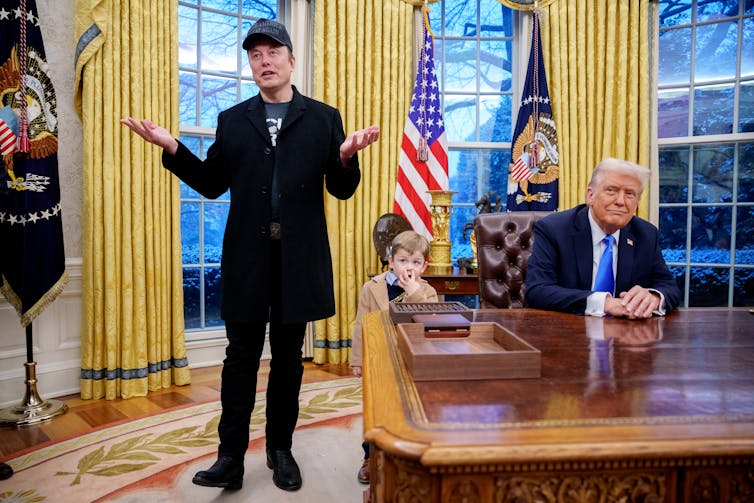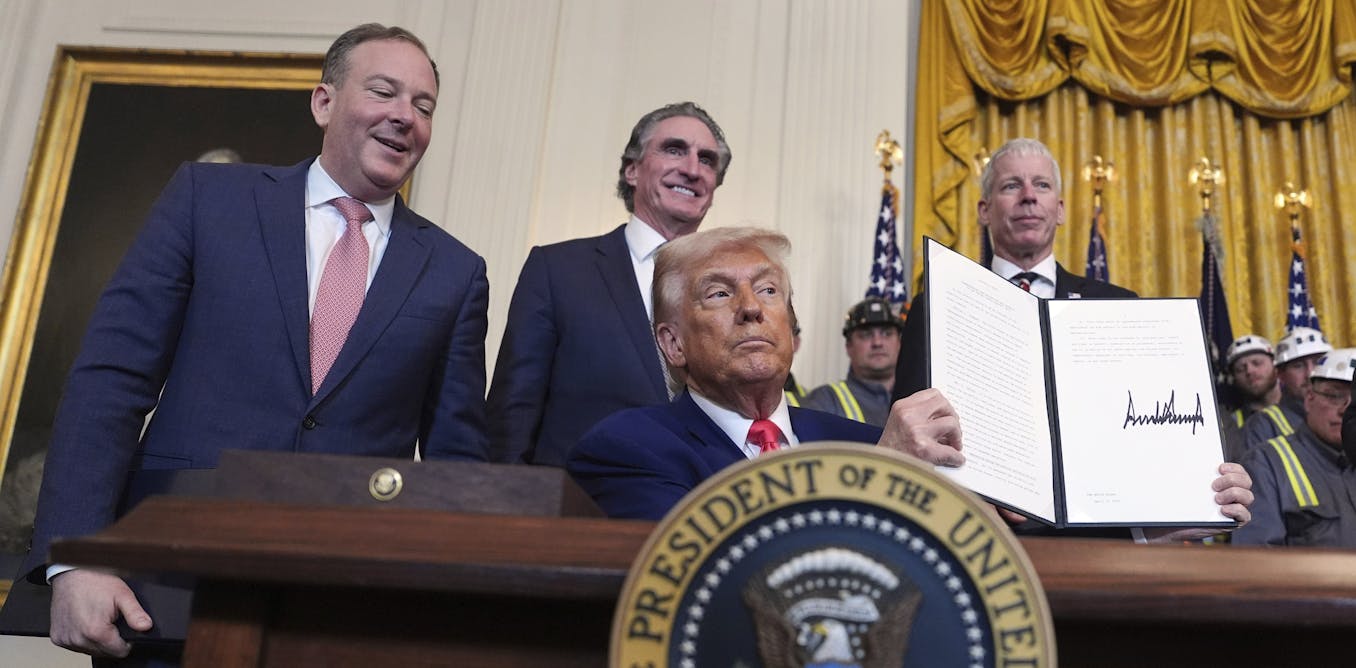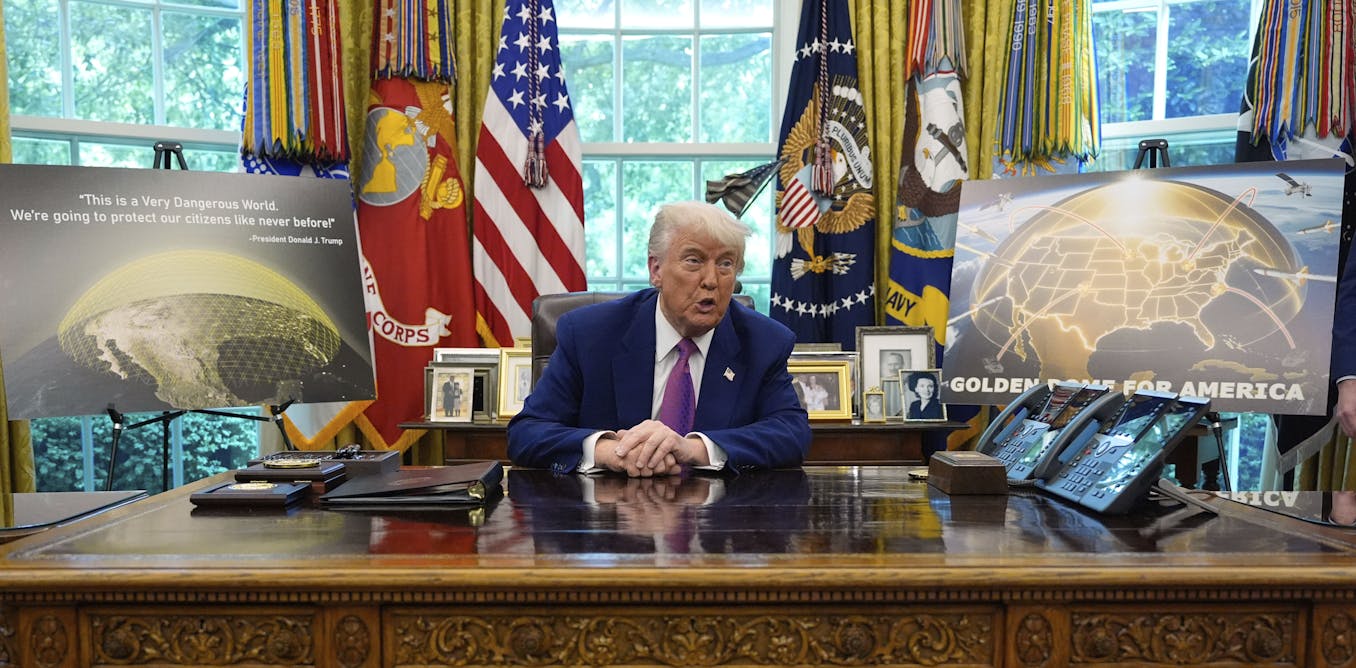Because of the Trump administration’s efforts to cut staff and spending, Congress’ “power of the purse” has been in the news lately. Many of these actions have been challenged in court.
I’m a law professor who has written about Congress’ power of the purse and some of the legal and constitutional issues that surround it. Here’s a brief explanation of the concept – and of why you should care about it.
How it works
Under the U.S. Constitution, Congress holds what’s commonly called the “power of the purse.” Congress, in other words, holds the authority to control government expenditures.
Concretely, Congress may enact laws that raise revenue through taxes and import duties, and it may also spend money for “the common Defence and general Welfare,” terms in the Constitution that are understood to cover almost any spending that Congress thinks is a good idea.
The Constitution, however, provides that “[n]o Money shall be drawn from the Treasury, but in Consequence of Appropriations made by Law.” Because of this clause, officials may not spend any government money unless a statute “appropriates,” or makes available, specific funds for the relevant purpose.
Although the Constitution forbids any appropriation for the Army that lasts longer than two years, Congress can choose in other contexts whether to provide an appropriation permanently or only for a prescribed length of time. Some benefits programs such as Social Security today have permanent appropriations, but most government agencies receive funds for their operations for just a year at a time.
wynnter-iStock/Getty Images Plus
Leverage over policy and presidents
Why does all of this matter?
Historically, the British Parliament’s control over government funds created a powerful check on the crown, and Parliament developed the practice of annual appropriations to ensure that it would always have leverage over royal policy.
Reflecting this history, James Madison, the fourth president and a leading figure in the Constitutional Convention, wrote in the Federalist Papers that the power of the purse was “the most complete and effectual weapon with which any constitution can arm the immediate representatives of the people, for obtaining a redress of every grievance, and for carrying into effect every just and salutary measure.”
This sort of leverage over policy still matters. American presidents today exercise vast powers. Over time, Congress has conferred extensive regulatory authorities on administrative agencies that operate under the president’s supervision.
Congress has also established a large Army, Navy, and Air Force over which the president is commander in chief. Presidents, moreover, have claimed the power to employ these armed forces in significant ways even without a declaration of war or other specific authorization from Congress.
Congress’ power of the purse gives it a say in how these powers are exercised. If Congress doesn’t like what an administrative agency is doing, it can cut its budget or deny funds for enforcing certain regulations – something it does regularly.
Likewise, Congress can deny funds for certain military operations or impose constraints on military activities – something it also does with some regularity. In the 1970s, Congress helped end the Vietnam War in part by withholding appropriations for military activities in Indochina.
Who’s in charge here?
Annual appropriations also give rise to the frustrating phenomenon of government “shutdowns”: If annual funding runs out before Congress enacts new appropriations, government agencies generally must halt operations.
On the whole, however, annual appropriations continue to serve much the same purpose in the United States that they did in Britain: They provide a potent check on the executive branch.
Given how strong this check is, it may not be surprising that presidents have sought ways to get around it.

Andrew Harnik/Getty Images
Based on debatable legal claims, President Barack Obama continued certain health insurance subsidies under the Affordable Care Act even after Congress denied appropriations for them. President Joe Biden attempted massive student debt relief without clear authority from Congress. Courts blocked both those actions, but now the new Trump administration has adopted several controversial policies that implicate Congress’ power of the purse.
On the one hand, the administration has apparently offered many federal employees nine months of paid leave if they agree to resign from federal service. But the legal basis for these offers is unclear, and it may be that no current appropriation by Congress provides funds for them.
On the other hand, the administration has attempted to “pause” certain government spending, even though existing appropriations made by Congress may require at least some of this spending.
These actions could violate not only Congress’ constitutional power of the purse but also specific statutes that Congress has enacted to reinforce its constitutional power.
The buyout offers could violate a law called the Anti-Deficiency Act that makes it unlawful, and sometimes criminal, for government officials to commit to spending money without an appropriation providing the necessary funds.
For their part, the pauses could violate a 1974 law called the Impoundment Control Act that generally forbids the government from delaying or withholding spending that Congress has mandated. Courts are now considering challenges to these actions based on these laws and other issues.
Trump may be hoping that Congress will cure any legal problems by ratifying these actions after the fact in its next round of appropriations legislation. But if Trump is indeed defying Congress’ spending laws and yet faces no consequences, his actions could chip away at Congress’ authority to check presidential policies in the future through its spending choices.
James Madison would not have been pleased.




